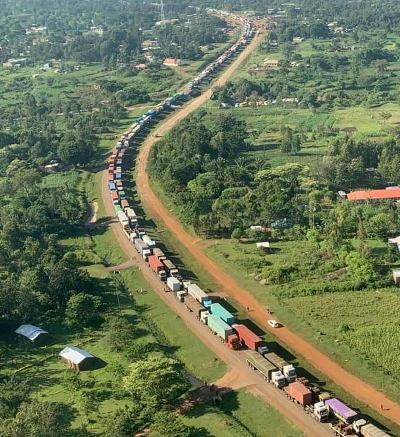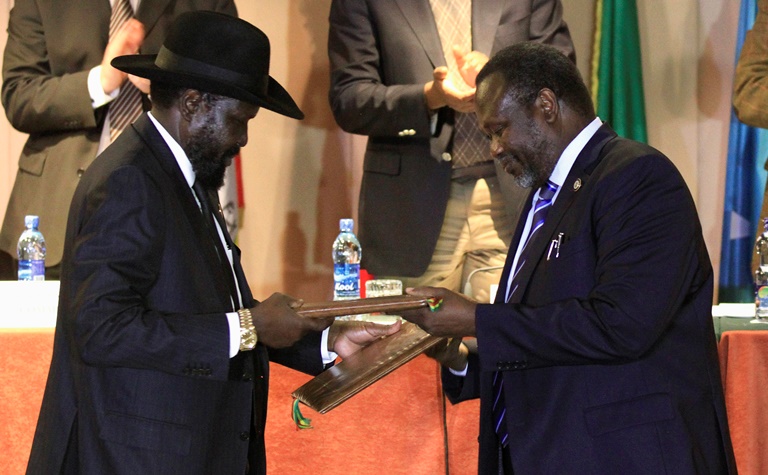Bulayimu Muwanga Kibirige
Uganda on Friday woke up to the bad news of the passing of businessman Bulaimu Muwanga Kibirige best known by his acronym BMK.
At 68, BMK has succumbed to cancer of the prostate first diagnosed in 2015.
In his 228 paged memoir titled ‘My Story of Building a Fortune in Africa’ published in March this year, BMK was thankful to God for having given him the opportunity to live for another five years defying the prediction of the doctors who had given him less than a year to live.
In the book, BMK tried to shine a light on how far his business empire goes. He admits having disdain for the media which he accuses of always looking at negatives that can destroy empires people have worked so hard to build. But in the book, which doesn’t’ speak so much to his personal life, BMK tells stories of how he built his business empire, starting at his birthplace in Masaka in 1966.
The boda boda industry that employs millions of young men in the region owes its life to BMK, who introduced the motorbikes in the late 1990 by offering hundreds of them on credit to Kampala’s riders. Previously for a quarter of a century, boda boda had mostly operated as manual bicycles at the Kenya Uganda border and in eastern towns up to Jinja.
BMK joined business soon after finishing Primary Seven and came to Kampala at a tender age to do business. He ‘escaped’ from his his dad who wanted him to continue with school by conspiring with his mum who concocted a trip for visiting relatives in Kampala for him. Once in Kampala, he soon hit the hectic Nairobi – Kampala route for bringing in essential commodities that had vanished from Uganda’s shops following the 1972 expulsion of Indian’s who then controlled the economy.
BMK’s business journey started off with his mother’s blessing, as she was only 15 years his senior and was his best friend, which she remained until she died a few months before him. His dad who also was a trader got her from Ankole and brought her to Masaka where he ran a successful restaurant and as a junior young wife, she was very close to her first born.
Working part time in the restaurant during holidays, BMK realized that his teachers’ monthly salary was less than what he made in a day as his dad’s assistant doubling also as a supplier of foodstuffs to the business. So after PLE, his mother helped him torpedo dad’s plan of an education career that was supposed to see him end as a school teacher. He only returned to Masaka a few years later, with a gift of a car for his old man.
As a trail blazer, BMK with time found Kenya too small and in the mid-seventies, and ventured on a trip to Hong Kong. Returning after a fortnight, he found that the goods in his cabin luggage were enough to cover all his costs for the trip and purchases, meaning everything in the checked in luggage was for profit. He never looked back and even reversed his role, from buying goods from Kenya to supplying quality goods to Kenya. He opened a shop in upscale Nairobi and during the post-Amin insecurity, he relocated fully to Kenya.
Returning to Uganda in 1986 after five years of exile in Nairobi, BMK went into manufacturing and also started his dream project – Hotel Africana.
A friend to President Yoweri Museveni from their struggle days (1981-86), he invited him for the opening and asked him to tell KCC then to sell him some land for expansion, and Museveni gave the directive. BMK paid for the plot, which made the expansion of Africana to its current state possible.
Besides prospering in Uganda, BMK became more active in the region. He transformed the construction industry in the much bigger economy of Kenya by importing heavy lifting equipment from Japan into Kenya, thus enabling smaller contractors compete with the big boys in building high rise structures both in Nairobi and other Kenyan towns.
As BMK struggled all over the globe, he had not known how big he had become until an event in 1998 opened his eyes to himself. Waking up in his room in Japan after a hard night packing spares in a vehicle demolition yard, he saw on CNN the embassy bombings in East Africa. And there in Nairobi, rescuers were fighting to clear the rubble, using equipment clearly branded ‘BMK”. The prayerful BMK fell on his knees to thank God for making him help provide life-saving solutions in Africa.
Saving lives, BMK did. By making quality spares from Japan affordably available different African countries, BMK helped reduce the armed car robberies where people were being killed just for their cars to be sold for spares.
Though BMK contributed generously to many needy causes and persons, the charitable work closest to his heart was sponsoring the fight against sickle cell disease. He chose to support sickle cell because he had never had a sufferer with the disease in his family, relative or even friends.
So he decided to throw his financial weight behind the Uganda sickle cell movement because he had no personal motive in it.
Besides Kenya and Uganda, BMK played pioneering roles elsewhere. In Zambia BMK is a household name. In DRC Congo, BMK set up big business operations. Rwanda became host to BMK’s “best organized” operation, in his own words. In Uganda and Tanzania, BMK set up the first modern gymnasium. In China, he created a big operation to facilitate trade with East Africa. In Thailand, Hong Kong and Dubai BMK had earlier set up similar operations.
But in South Sudan BMK failed.
He could not manage to work in South Sudan due to the insecurity. So he just got out.
After being diagnosed with cancer a few years ago, BMK decided to write his autobiography, explaining his step by step growth how he has built his business empire without cutting corners. His autobiography “My Story of Building a Fortune in Africa”, was released recently. It is also a valuable instruction manual in building a business, especially mobilising capital, which most people regard as the biggest obstacle to starting off.
A school dropout from Buddu, BMK has been a visiting lecturer at several universities in different countries, has been awarded a doctorate and was widely consulted by big businesspersons and and by government as well.
BMK has spent the last year of his life in Nairobi where critical medical care is available.
He is survived by two widows; Sophia and Hawa Muwanga and 17 children. Although no official communication about the burial arrangements has been made, BMK will probably be buried at Nkoowe Muslim Cemetery along Hoima Road in Wakiso district where this year his daughter and mother were also buried.
-URN





